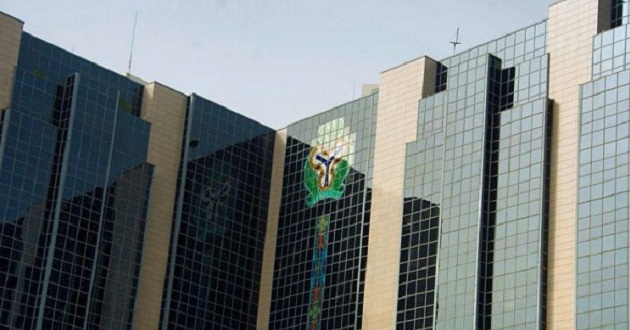Business
Nigeria records $4.5bn deficit in balance of payment for Q3

A report by the Central Bank of Nigeria (CBN) has shown that Nigeria recorded $4.54 billion in deficit in the provisional Balance of Payments estimates for Q3, 2018.
The figure showed a significant downturn in the country’s position when compared to surpluses of $503m and $2.78bn recorded in the preceding quarter and the corresponding period of 2017, respectively.
The balance of payment is a summary of all monetary transactions between a country and the rest of the world. These transactions are made by individuals, firms and government bodies.
The CBN third quarter 2018 brief on balance of payment statistics released on Friday, also showed that Current Account Balance also worsened from a surplus of $4.45bn in Q2, 2018 to a deficit of $3.1bn in Q3 2018.
The financial account balance indicated an increased net incurrence of financial liabilities of $10.72bn in the review period as against $2.57bn recorded in the preceding period.
The CBN brief also noted that the current account indicated a negative outcome during the review period, recording a deficit of $3.10bn as against surpluses of $4.45bn and $1.97bn in the previous quarter and the corresponding period of 2017, respectively.
This, the brief said is because of increased payment for imports.
Read also: Nigeria owes $5.1bn in joint venture cash calls
Export earnings rose by 2.8 per cent to $16.21bn in Q3, 2018 when compared with Q2, 2018.
The brief also showed that crude oil and gas dominated export arnings, accounting for 94.4 percent for the review, increasing by 9.5 per cent to $15.301bn in Q3, 2018, when compared with the preceding quarter.
Earnings from non-oil and electricity exports decreased by 49.3 per cent to $909m in Q3, 2018 when compared with the preceding quarter.
Available data showed that payments for the import of goods (fob) to the economy in the review period increased by 70.5 per cent to $14.085bn above the level recorded in the preceding quarter.
This was largely as a result of 79.7 per cent increase in the imports of non-oil products.
Direct Investments inflow increased by 0.7 per cent to $438.84m when compared with the preceding quarter of 2018.
It, however, indicated a decline of 45.0 per cent when compared to the corresponding period of 2017.
Similarly, portfolio investments inflow to the economy decreased significantly to $1.79bn in Q3, 2018 from $4.233bn and $3.320bn in the preceding quarter and the corresponding period of 2017, respectively.
The brief also showed that other investment liabilities increased slightly to $4.28bn when compared with $3.226bn recorded in the preceding quarter.
The stock of external reserves as of the end of September 2018 stood at $42.60bn indicating a depletion of 9.6 per cent when compared with the level in the preceding quarter.
Join the conversation
Support Ripples Nigeria, hold up solutions journalism
Balanced, fearless journalism driven by data comes at huge financial costs.
As a media platform, we hold leadership accountable and will not trade the right to press freedom and free speech for a piece of cake.
If you like what we do, and are ready to uphold solutions journalism, kindly donate to the Ripples Nigeria cause.
Your support would help to ensure that citizens and institutions continue to have free access to credible and reliable information for societal development.






















